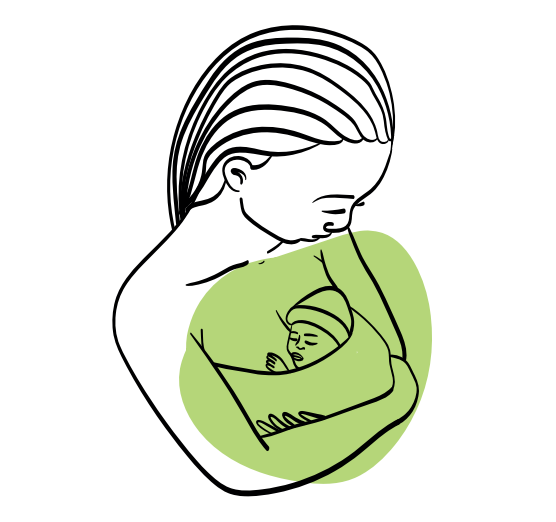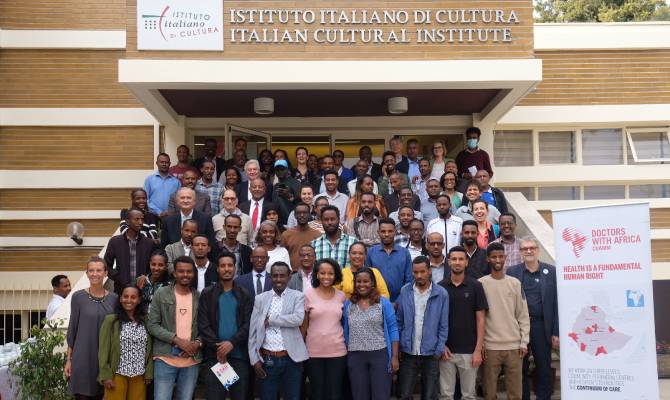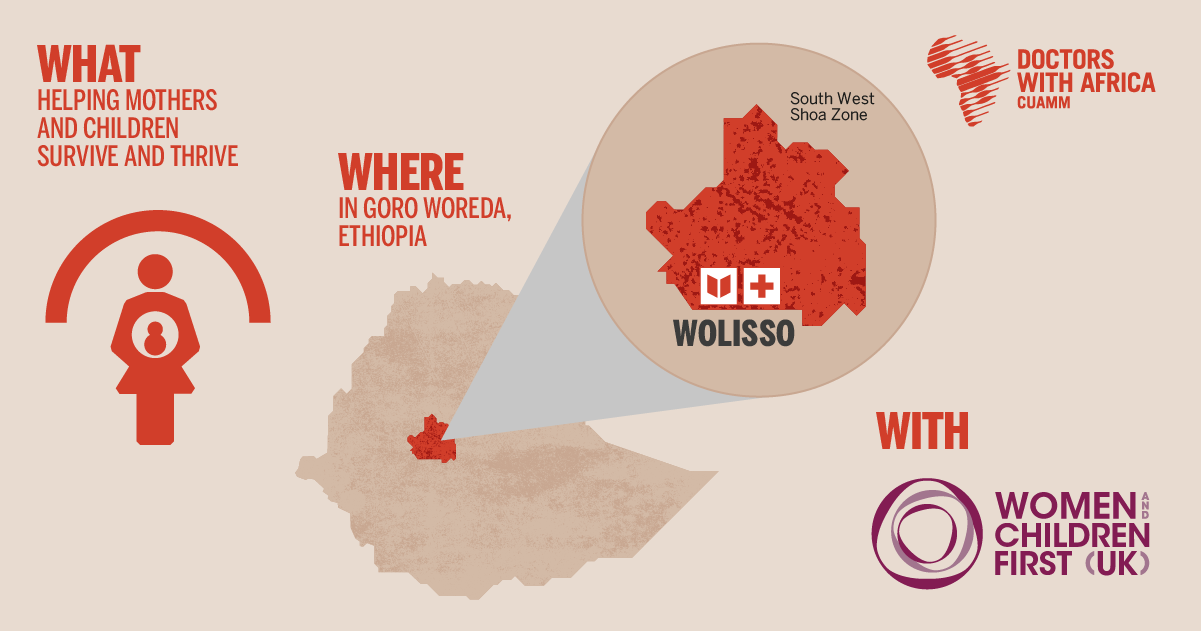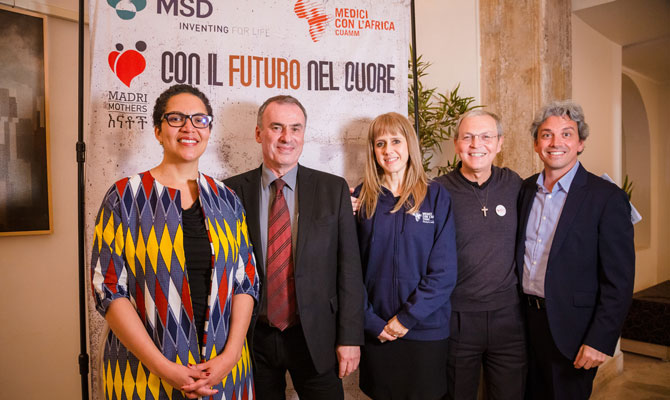The “Newborn Survival Project: quality and innovation for an increased access to neonatal care”, supported by the Italian Agency for Development Cooperation, in partnership with local partners, has been developed in Ethiopia, more precisely in the areas of Addis Ababa, Tulu Bolo and Wolisso. The project aimed to improve accessibility and to strengthen neonatal, maternal and children healthcare services. Particularly, it focused on setting up, equipping and supplying drugs to the Neonatal Intensive Care Units (NICUs) of the three hospitals involved in the project’s areas of reference: St. Paul in Addis Ababa, St. Luke in Wolisso, and Tulu Bolo hospitals.
EQUIPMENT OF NEONATAL INTENSIVE CARE UNITS
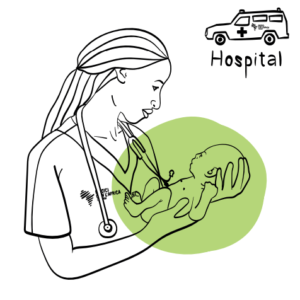
The NICUs of the three hospitals involved, have been equipped with drugs, wall-mounted oxygen concentrators, and all the necessary equipment to enable the wards to manage even the most critical cases independently.
“The NICU project has enabled us to install oxygen generators and to provide each hospital’s ward with a wall-mounted oxygen distribution instrument – tells us Eleonora Balestri, neonatologist for CUAMM at Wolisso hospital -. Considering that most newborns who have been diagnosed with pathologies at birth may be affected by respiratory disorders, it is extremely important to have the opportunity help them with this equipment that is pioneering in Ethiopia”.
TRAINING OF SPECIALISTS AND LOCAL OPERATORS
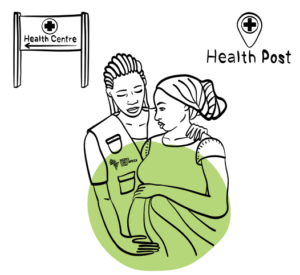
Increasing the availability of specialised local staff, together with training and capacity building, were key components of the intervention. Training was provided on essential neonatal care, care of the pathological newborn, neonatal resuscitation and the use of NICU equipment. A total of 53 nurses and 56 biomedical engineers were trained.
“The opening of the neonatal intensive care unit in Wolisso was greeted with great joy and enthusiasm by the local staff, who also saw it as an opportunity to further their training. In fact, 10 out of 13 nurses spent a month in Addis Ababa for a specialisation course,” says Eleonora Belestri, CUAMM neonatologist at the Wolisso hospital. The aim of the training was to make the local staff autonomous, particularly in following the protocols for the main neonatal pathologies and in the use of machinery”.
COMMUNITY OUTREACH
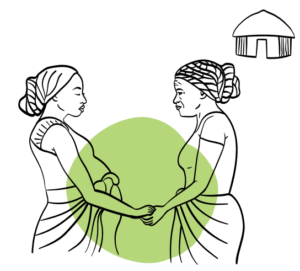
In addition to training NICU health workers, 26 Health Extension Workers, community health workers, and 575 women community activists from the Women Development Army were also trained. Thanks to their crucial support, 158 community meetings were held, raising awareness among 51,652 women about maternal and child health and newborn care.
“Women activists from the Women Development Army were the key to reaching the communities. For the all 15 Kebele, 40 women were selected and we started to hold regular meetings with them on health issues, a space for discussion, debate, and to collect feedback and data from the awareness-raising activities carried out,” says Genet, a Cuamm worker responsible for community mobilisation. The Covid had a strong impact on our activities because it prevented us from going house to house and meeting in person for months, until we managed to restart activities in compliance with safety rules, using the masks we had distributed to all the women of the Women Development Army. We also conducted education sessions on how to prevent and protect against Covid-19”.
PROMOTION OF HEALTH SERVICES FOR PREGNANT WOMEN
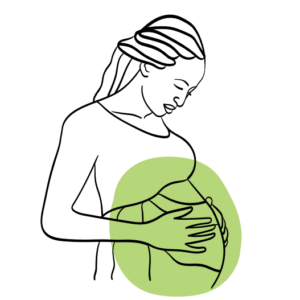
Conveying to women the importance of taking care of themselves already in the early stages of pregnancy is crucial for their health and that of their children. This is possible in particular through the active involvement of people and the training of health workers, community activists and peer-mothers to become a reference point for the rest of the community.
“Thanks to the community health workers and doctors, I learned a lot about health and how to take care of myself. In the case of a second pregnancy, they advised me to reduce my efforts to a minimum, to spend little time standing, to eat healthy food, and to have regular check-ups. So, when I found out that I was expecting another child, I started to be followed right away,” says a young mother who is a beneficiary of the project.
EDUCATION IN NEWBORN CARE AND GOOD HEALTH AND NUTRITIONAL PRACTICES
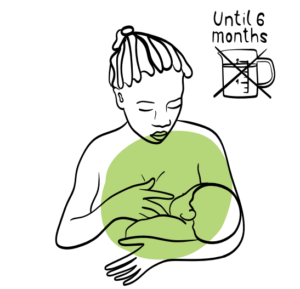
In collaboration with district authorities, community health workers and Women Development Army’ activists visit villages to sensitise mothers and the community on maternal and newborn health, particularly exclusive breastfeeding during the first six months of a newborn’s life.
For the promotion of breastfeeding to be effective, the support of fathers, family members, health workers and the whole community is essential.
“During the first six months, with the advice I received from the operators, I breastfed my son only with mother’s milk. After that, I learned to cook simple, protein-rich meals to make my son healthy and strong,” says a young mother who is a beneficiary of the project.
The NICU project focused on the care of mothers and children, because the health of the whole community depends on their health. “Being ‘with’ means sharing the daily difficulties and rejoicing together in the achievements,” explains Eleonora. Africa means struggling alongside them every day, trying to identify needs together, to find solutions, always together, learning also to accept that changes and improvements need time, required by the context and circumstances, sometimes different from “ours”.
“Newborn Survival Project: quality and innovation for an increased access to neonatal care in Ethiopia” is a three-year project started in June 2018, supported by the Italian Agency for Development Cooperation, and implemented by CUAMM in partnership with Federal Ministry of Health (FMoH), Ethiopian Catholic Church – Social and Development Commission (ECCSDCO) and Oromia Regional Health Bureau, South West Shoa Zone Health (SWSZHD). Moreover, the project has been implemented with the direct engagement of technical partners namely: Ethiopian Paediatric Society – EPS responsible for the training and supervisions, Ospedale Pediatrico Bambino Gesù (OPBG), Informatics without Borders (Informatici senza Frontiere – ISF) and Università degli Studi di Tor Vergata – Dipartimento Pediatrico Universitario-Ospedaliero (DPUO TV).


